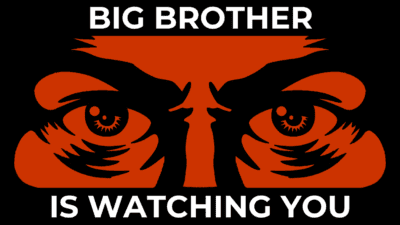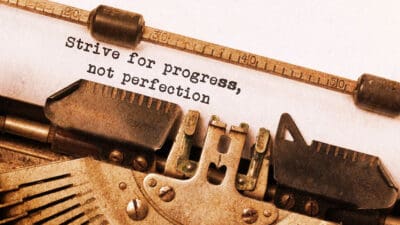In a world where personal achievement often takes center stage, understanding the balance between ego and selflessness is crucial for genuine personal development and growth.
It is also an outstanding leadership skill.
Although many confuse the issue, selfishness and ego are NOT the same thing at all.
A healthy ego isn’t about arrogance or self-centeredness; it’s about having confidence and a clear sense of self-worth without overshadowing the needs and feelings of others.
When nurtured properly, a healthy ego can be a powerful tool that propels us toward our goals while maintaining harmonious relationships.
Balancing ego and selflessness is not just a nice-to-have skill; it’s essential for anyone seeking a fulfilling life.
Too much ego can lead to isolation and missed opportunities for connection, while excessive selflessness may cause burnout and resentment. By striking the right balance, we can foster self-awareness and cultivate meaningful interactions with those around us.
Recognize Your Self-Worth
Understanding your self-worth is a foundational step in balancing a healthy ego and selflessness. Embracing your unique qualities and strengths allows you to acknowledge the value you bring to the world.
For example, consider a musician who recognizes their gift for creating melodies that inspire others. By focusing on this talent, the musician can cultivate a sense of purpose and fulfillment without succumbing to selfish behavior or the need for constant external validation.
This self-awareness fosters emotional intelligence, enabling you to appreciate your individuality while remaining humble.
Avoiding comparisons with others is crucial in maintaining a healthy ego. In our interconnected world, it’s easy to fall into the trap of measuring your success against others’. However, remember that everyone’s journey is different, and what may appear like someone else’s triumph could merely be a snapshot of their complex story.
Instead of dwelling on comparisons, celebrate your achievements, no matter how small they may seem. As you let go of the tendency to compare, you’ll find greater peace and satisfaction in your personal growth and accomplishments.
Practicing self-compassion regularly is another key component in recognizing your self-worth. Life is full of ups and downs, and it’s essential to treat yourself with kindness during challenging times.
Imagine a scenario where you make a mistake at work. Rather than harshly criticizing yourself, approach the situation with understanding and patience. Remind yourself that everyone makes mistakes and that these experiences are opportunities for learning and growth.
By nurturing self-compassion, you strengthen your emotional resilience and reinforce a balanced perspective that blends ego and selflessness harmoniously.
- Embrace your unique qualities and strengths
- Avoid comparing yourself to others
- Practice self-compassion regularly
Set Healthy Boundaries
Setting healthy boundaries is an essential skill in balancing ego and selflessness, as it allows you to protect your self-esteem while fostering empathy for others.
Learning to say no without guilt is a crucial first step.
Many people struggle with this because they fear disappointing others or being perceived as selfish. However, consistently prioritizing others’ needs over your own can lead to burnout and resentment.
For instance, imagine a scenario where a friend frequently asks for favours that disrupt your schedule. Politely declining, when necessary, not only preserves your well-being but also teaches you to value your own time and energy.
Defining what is acceptable in your relationships is another key component of setting boundaries. This involves communicating your limits clearly and assertively with those around you.
It might mean letting a colleague know that you prefer email communication after work hours or telling a family member that you need uninterrupted time during your meditation practice.
By establishing these boundaries, you create an environment where mutual respect can flourish, allowing both parties to understand and appreciate each other’s needs. This not only strengthens your relationships but also cultivates a space where empathy can thrive, as everyone becomes more aware of personal limits and expectations.
Protecting your time and energy for personal growth is vital in maintaining a balanced life. Personal development requires focus and dedication, and without proper boundaries, it’s easy to become sidetracked by the demands of others.
Allocating specific time slots for activities that nurture your growth – such as reading, exercising, or engaging in a creative hobby – ensures that you are prioritizing your own advancement. This not only boosts your self-esteem by reinforcing your commitment to self-improvement but also enriches your capacity to offer genuine support and understanding to others.
By taking care of yourself first, you become better equipped to contribute positively to the lives of those around you.
- Learn to say no without guilt
- Define what is acceptable in your relationships
- Protect your time and energy for personal growth
Practice Empathy
Practicing empathy is a crucial step in balancing a healthy ego with selflessness, as it allows us to connect with others on a deeper level.
Active listening is the foundation of empathy, where we focus entirely on the speaker without letting our own thoughts interrupt.
For instance, imagine a friend sharing their struggles at work. Instead of immediately offering solutions or comparing it to your own experiences, simply listen and acknowledge their feelings by saying, “That sounds really challenging.”
This act of mindfulness in conversations not only validates the other person’s emotions but also fosters a sense of understanding and respect.
A healthy ego doesn’t overshadow the needs and feelings of others. Instead, it enables us to recognize and appreciate diverse perspectives.
Self-reflection plays a vital role here, as it helps identify any biases or preconceived notions that might cloud our ability to empathize genuinely.
When you find yourself disagreeing with someone, take a moment to pause and reflect on why you feel this way. Ask yourself if your reaction is rooted in ego or if there’s room to embrace another viewpoint. By doing so, you open yourself up to more meaningful interactions and personal growth.
Offering support without expecting anything in return is the essence of true empathy. It’s about being there for others purely out of kindness and compassion, without anticipating accolades or reciprocation. This could be as simple as volunteering your time to help a colleague with a project or offering a comforting presence to a friend in distress. Such acts of generosity enrich our lives and contribute to a balanced approach to ego and selflessness.
In practicing empathy, we create an environment where everyone feels valued and heard, ultimately leading to stronger, more authentic relationships.
- Listen actively to others’ perspectives
- Acknowledge and validate other people’s feelings
- Offer support without expecting anything in return
Cultivate Self-Awareness
Cultivating self-awareness is another cornerstone of personal development and plays a critical role in balancing ego and selflessness. It involves regularly reflecting on your thoughts and emotions to better understand what drives your actions and reactions.
For example, you might keep a journal where you jot down daily reflections or meditate to center your mind. This practice helps you identify your emotional triggers and how they influence your interactions with others.
By becoming more attuned to these inner workings, you can begin to see patterns in your behavior that may unintentionally harm those around you, allowing you to address them proactively.
Understanding these patterns isn’t just about self-reflection; it also requires actively seeking feedback from trusted friends or mentors. This external perspective can be invaluable as it offers insights that you might overlook due to your own biases.
For instance, a colleague might gently point out that your tendency to dominate conversations could be discouraging others from sharing their ideas. Recognizing this pattern enables you to adjust your behavior, thereby setting healthier boundaries that respect the voices of others while fostering more collaborative and enriching relationships.
Additionally, cultivating self-awareness demands a commitment to self-care, as it involves confronting uncomfortable truths about yourself.
It’s important to approach this journey with kindness and patience, understanding that growth is gradual. Engaging in regular self-care practices like exercise, adequate rest, and pursuing hobbies can provide the mental clarity needed to process feedback constructively and implement positive changes in your life.
Ultimately, by investing in self-awareness, you not only enhance your capacity for empathy but also create a balanced space where both ego and selflessness can coexist harmoniously.
- Reflect on your thoughts and emotions regularly
- Identify patterns in your behaviour that may harm others
- Seek feedback from trusted friends or mentors
Prioritise Personal Growth
Prioritising personal growth is an essential step in maintaining a healthy ego while nurturing selflessness. Setting realistic and achievable goals for self-improvement is crucial in this journey.
Instead of aiming for perfection, focus on small, manageable steps that lead to consistent progress.
For example, if you want to improve your communication skills, start by setting a goal to engage in meaningful conversations with friends or colleagues each week. Over time, these small efforts can lead to significant improvements in your interpersonal relationships and boost your confidence.
Embracing lifelong learning and new experiences is another vital aspect of personal growth. By continuously seeking knowledge and exposing yourself to diverse perspectives, you expand your understanding of the world and deepen your empathy for others.
Consider joining a workshop or taking up a hobby that challenges you and broadens your horizons. This not only enriches your life but also fosters a sense of humility as you recognize there is always more to learn.
A healthy ego thrives on the balance between self-assuredness and an openness to new ideas.
Remember, celebrating small victories along your growth journey is key to sustaining motivation and reinforcing positive habits.
Acknowledging these achievements – whether it’s mastering a new skill or simply sticking to a routine – can provide the encouragement needed to keep moving forward.
Celebrating doesn’t have to be extravagant; even taking a moment to reflect on your progress or sharing your success with a friend can reinforce your commitment to self-improvement.
These celebrations serve as reminders of how far you’ve come and inspire continued effort toward your own development and the betterment of your interpersonal relationships.
- Set realistic and achievable goals for self-improvement
- Embrace lifelong learning and new experiences
- Celebrate small victories on your growth journey
Foster Collaborative Relationships
In today’s interconnected world, fostering collaborative relationships is more important than ever. Encouraging teamwork and shared goals can lead to a harmonious and productive environment where everyone feels valued and heard.
Imagine working on a group project where each member brings their unique strengths to the table. By recognizing these individual contributions, the team can achieve a more comprehensive and innovative result than any single person could accomplish alone. This approach not only boosts morale but also enhances the overall quality of work, as diverse perspectives and skills are combined to create something truly remarkable.
Appreciating the contributions of others is another key aspect of building strong, collaborative relationships.
Whether it’s a colleague’s insightful idea or a friend’s unwavering support, acknowledging and valuing what others bring to the table can strengthen bonds and build mutual respect.
A simple “thank you” or a note of appreciation can go a long way in demonstrating gratitude and fostering goodwill. In turn, this creates an atmosphere where individuals are more willing to share their thoughts and ideas, knowing that their efforts will be recognized and appreciated.
Striving for win-win outcomes in conflicts is essential for maintaining healthy relationships.
Conflicts are inevitable in any group setting but approaching them with a mindset focused on mutual benefit can transform potential roadblocks into opportunities for growth.
Consider a situation where two team members have differing opinions on how to proceed with a project. Instead of viewing it as a zero-sum game, they can engage in open dialogue, exploring each other’s perspectives to find common ground. By doing so, they not only resolve the conflict but also develop a deeper understanding of each other’s viewpoints, ultimately leading to more effective collaboration in the future.
Embracing this approach allows for creative solutions that satisfy all parties involved, fostering an environment of trust and cooperation.
- Encourage teamwork and shared goals
- Appreciate the contributions of others
- Strive for win-win outcomes in conflicts
Practice Gratitude and Generosity
Practicing gratitude and generosity is a powerful way to balance ego and selflessness, fostering a healthy ego that acknowledges its strengths while appreciating the contributions of others.
By dedicating a few moments each day to jotting down what you’re thankful for, you train your mind to focus on the positive aspects of your life. This practice not only enhances your well-being but also shifts your perspective, making you more appreciative of the small joys and victories often overshadowed by daily stressors. For instance, noting the kindness of a stranger or the support from a friend can reinforce a sense of connectedness and humility.
Sharing your time and resources with those in need further nurtures a balanced ego. Engaging in volunteer work or simply offering assistance to someone struggling can be incredibly rewarding. It reminds us of our shared humanity and the impact we can have on each other’s lives.
Imagine organizing a community cleanup or mentoring a young person in your field; these acts of generosity not only benefit others but also enrich your life by expanding your network and enhancing your empathy. Such experiences are invaluable in promoting personal growth and reinforcing the idea that our value isn’t solely defined by our achievements but also by our contributions to the greater good.
Recognising and appreciating the help you receive from others cultivates a sense of gratitude that also helps keep your ego in check. Acknowledging that we all need support at times diminishes the illusion of self-sufficiency and fosters deeper connections.
When someone offers you advice or lends a helping hand, express your thanks sincerely. This simple act strengthens relationships and encourages a culture of mutual respect and cooperation.
Remember, a healthy ego is one that recognizes its interdependence with others, appreciating that personal success is often a collective effort. By embracing gratitude and generosity, you not only enrich your own life but also contribute positively to the lives of those around you.
- Keep a gratitude journal to focus on the positive
- Share your time and resources with those in need
- Recognize and appreciate the help you receive from others
The Path to a Balanced Life
Cultivating a healthy ego while maintaining selflessness is crucial for personal growth and nurturing a balanced perspective that enhances both your self-worth and relationships.
A healthy ego allows you to recognize your strengths without overshadowing the needs of others. This balance fosters a life filled with empathy, gratitude, and collaboration.
Remember, change doesn’t happen overnight.
Ongoing practice of these strategies is key to lasting transformation. Embrace this journey with patience and commitment.
As you integrate these habits into your daily life, you’ll find yourself becoming more resilient, compassionate, joyful and fulfilled.
Keep striving for balance, and watch as it positively shapes your world.




